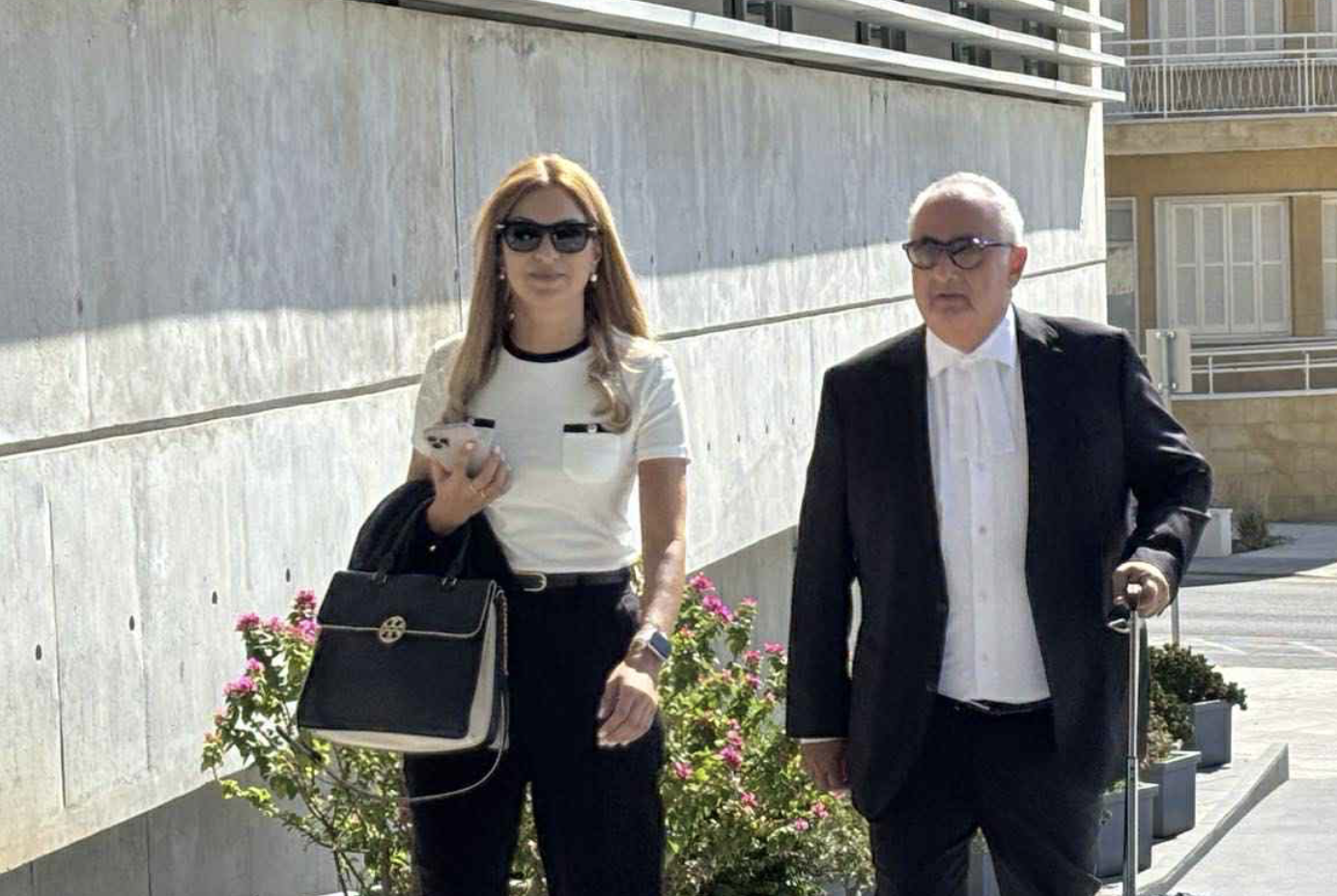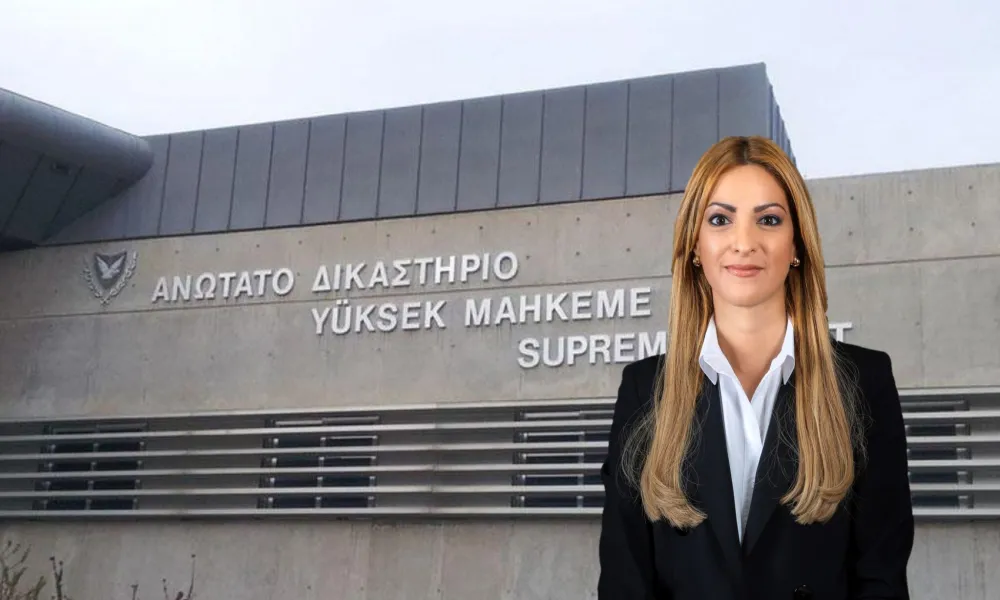The Supreme Constitutional Court has reserved its decision in regard to the preliminary question raised by dismissed judge Doria Varosiotou, on the procedure followed by the Supreme Judicial Council in the termination of her services as District.
During yesterday’s proceedings before the Supreme Constitutional Court plenary, Varosiotou’s lawyer, Achilleas Demetriades, and the legal representative of the Judicial Council presented their respective outlines of the written submissions on the matter.
Varosiotou’s side argued in favour of approving the request to refer the issue to the Court of Justice of the European Union (CJEU) in Luxembourg.
Their main argument was that the request is grounded in the legal consequences arising from the lack of a regulatory framework governing both the termination procedure and the conclusion of the probationary period in the appointment of judges at national level.

Among the points raised by Mr. Demetriades was the GRECO report.
“There can be no established practice for something that has never occurred before, such as termination during a probationary period,” he noted, adding that the GRECO report also made no reference to any such procedure.
He further emphasised that every national judge in the Republic of Cyprus has also been a Union judge since 2004, enjoying the corresponding protections, and that national courts are considered de facto decentralised EU courts.
He maintained that a dialogue must be launched through preliminary reference to the CJEU.
According to Mr. Demetriades, this is the first time that the issue of termination during a judicial probationary period has been raised in preliminary proceedings and this is fundamentally a matter for EU law.
He argued that only the CJEU has the authority to determine whether such ad hoc procedures are permissible, and that a single decision could apply uniformly across all Member States. Demetriades further stressed that there is no existing EU case law on this specific matter.
“This is an issue of Union law, the termination of a Union judge, and we are seeking a reference as part of the dialogue with the CJEU,” Demetriades stated.
The Supreme Judicial Council was represented by lawyers Maria Antoniou and Nikolas Kallenos.
In his submission, Mr. Kallenos argued that there is a clear divergence of views, both regarding the legal framework for termination and the factual context, and that as such, the necessary conditions for making a reference to the CJEU, specifically the requirement of a genuine legal uncertainty, are not met.
He expressed the view that a legislative framework and consistent practice do exist, and that Varosiotou’s application appears to be an attempt to solicit a ruling from the CJEU on matters relating to the appointment, non-confirmation, and termination of judicial office.
It was further argued that the stage at which the request was made is procedurally inappropriate and does not permit referral to the CJEU. He added that there is ample relevant case law that the Supreme Constitutional Court can examine and apply to the circumstances of the present case.
Having receiving the detailed written arguments of both parties along with oral submissions, the Supreme Constitutional Court reserved its decision, to be announced at a later stage.
Two weeks ago, the Supreme Judicial Council had rejected a separate request by Doria Varosiotou seeking the recusal of three judges, including the President, from hearing the case related to the termination of her judicial service.
Through her lawyer, she had filed an application requesting the recusal of the President and two members of the Supreme Judicial Council, on grounds of objective impartiality.
As stated in the Council's decision:
“Acceptance of the applicant’s request would, in essence, constitute a refusal to carry out our judicial duty and would be incompatible with the imperative for the proper functioning of the judicial system. Even if the applicant’s position were valid and the request for recusal justified, its acceptance would have broader implications - specifically, a direct impact on the legal feasibility of forming a secondary-level judicial council competent to adjudicate the objection.”
